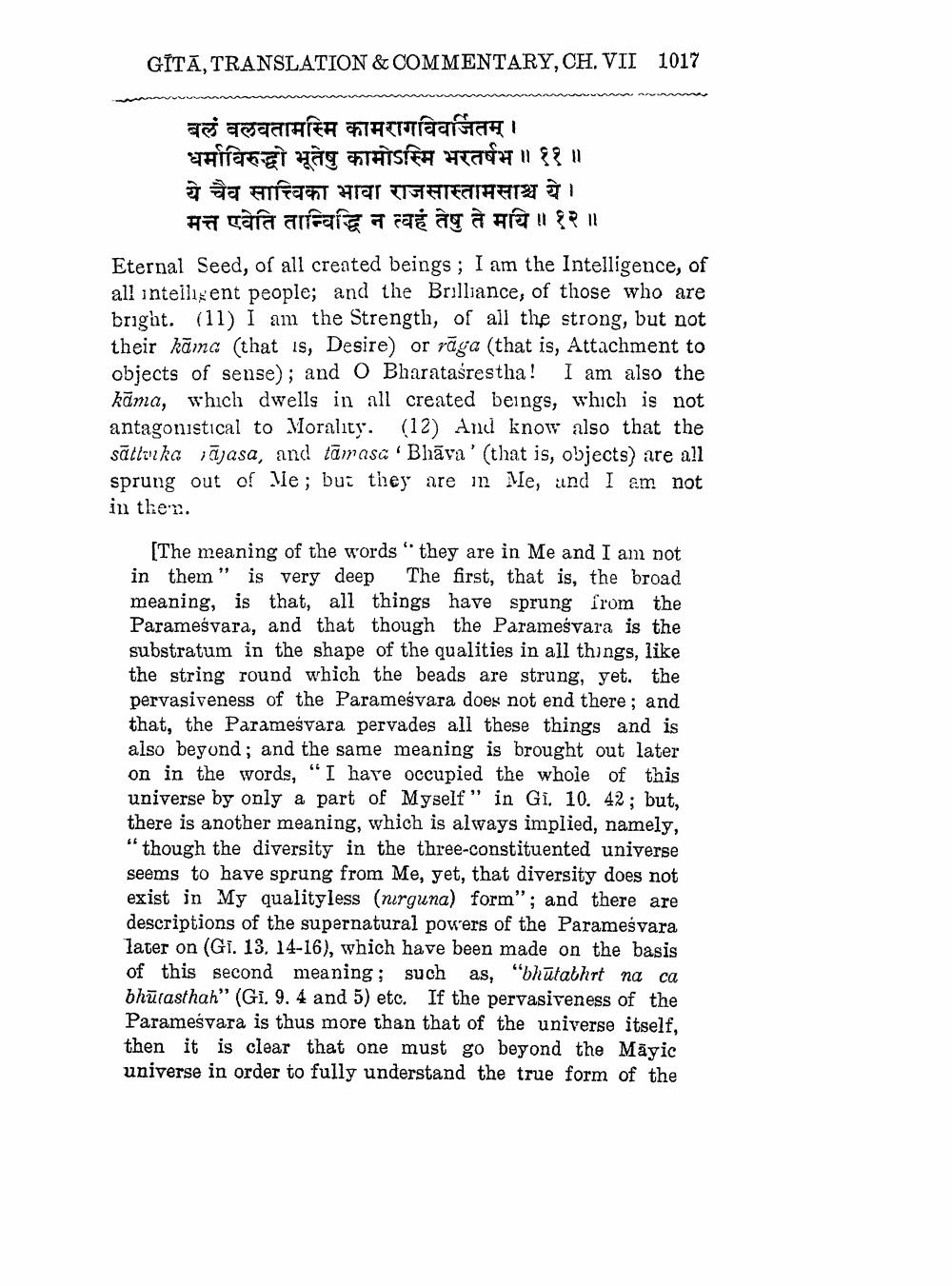________________
GĪTĀ, TRANSLATION & COMMENTARY, CH. VII 1017
बलं वलवतामस्मि कामरागविवर्जितम्। धर्माविरुद्धो भूतेषु कामोऽस्मि भरतर्षभ ॥११॥ ये चैव सात्त्विका भावा राजसास्तामसाश्च ये। मत्त एवेति तान्विद्धि न त्वहं तेषु ते मयि ॥१२॥
Eternal Seed, of all created beings; I am the Intelligence, of all inteiligent people; and the Brilliance, of those who are bright. (11) I am the Strength, of all the strong, but not their kāma (that is, Desire) or rāga (that is, Attachment to objects of sense); and O Bharatašrestha! I am also the kāma, which dwells in all created beings, which is not antagonistical to Morality. (12) And know also that the sättarka jasa, and tamasa Bhāva' (that is, objects) are all sprung out of Me; but they are in Me, and I am not in then.
[The meaning of the words " they are in Me and I am not in them" is very deep The first, that is, the broad meaning, is that, all things have sprung from the Parameśvara, and that though the Parameśvara is the substratum in the shape of the qualities in all things, like the string round which the beads are strung, yet. the pervasiveness of the Parameśvara does not end there; and that, the Parameśvara pervades all these things and is also beyond ; and the same meaning is brought out later on in the words, “I have occupied the whole of this universe by only a part of Myself" in Gi. 10. 42; but, there is another meaning, which is always implied, namely, "though the diversity in the three-constituented universe seems to have sprung from Me, yet, that diversity does not exist in My qualityless (nirguna) form"; and there are descriptions of the supernatural powers of the Paramesvara later on (Gi. 13. 14-16), which have been made on the basis of this second meaning; such as, "bhūtabhrt na ca bhūtasthah" (Gi. 9. 4 and 5) etc. If the pervasiveness of the Parameśvara is thus more than that of the universe itself, then it is clear that one must go beyond the Māyic universe in order to fully understand the true form of the




